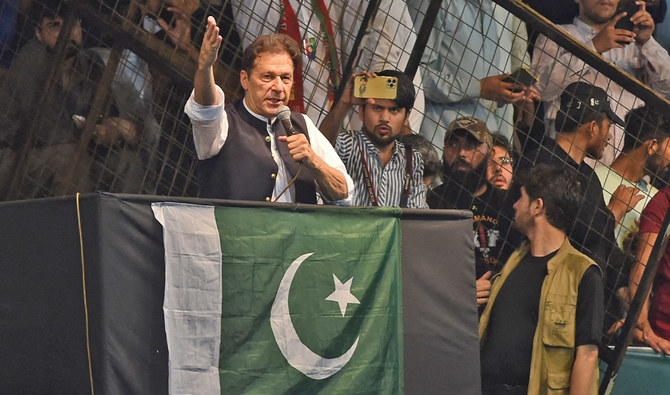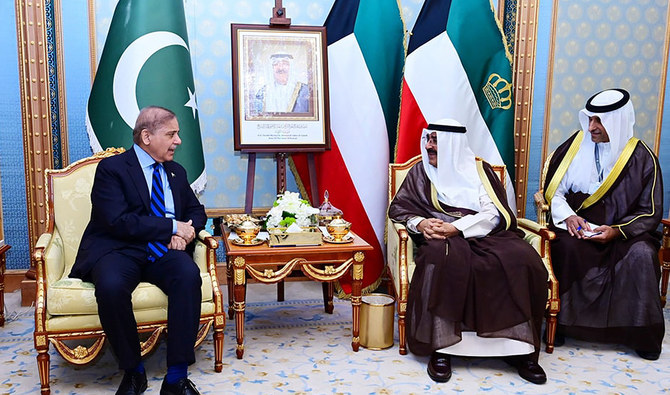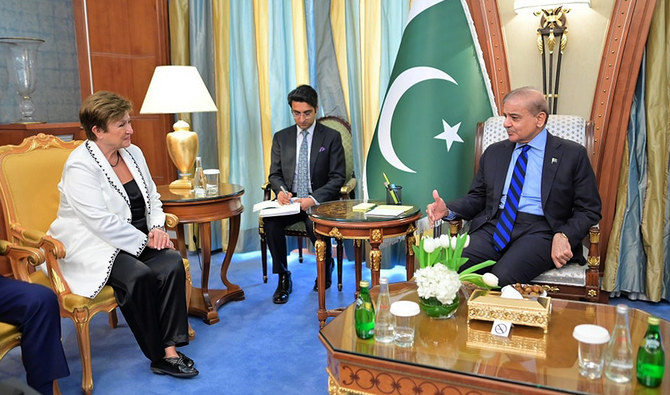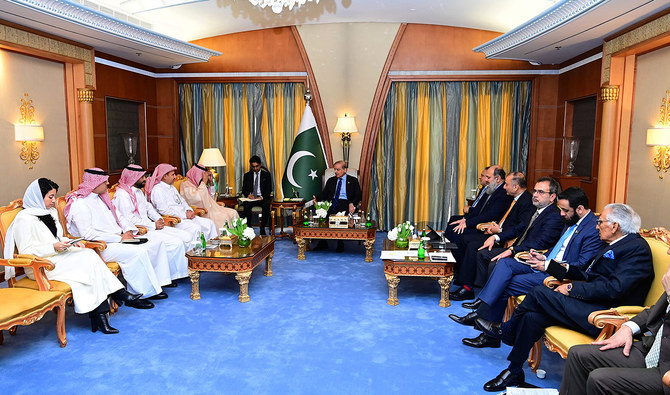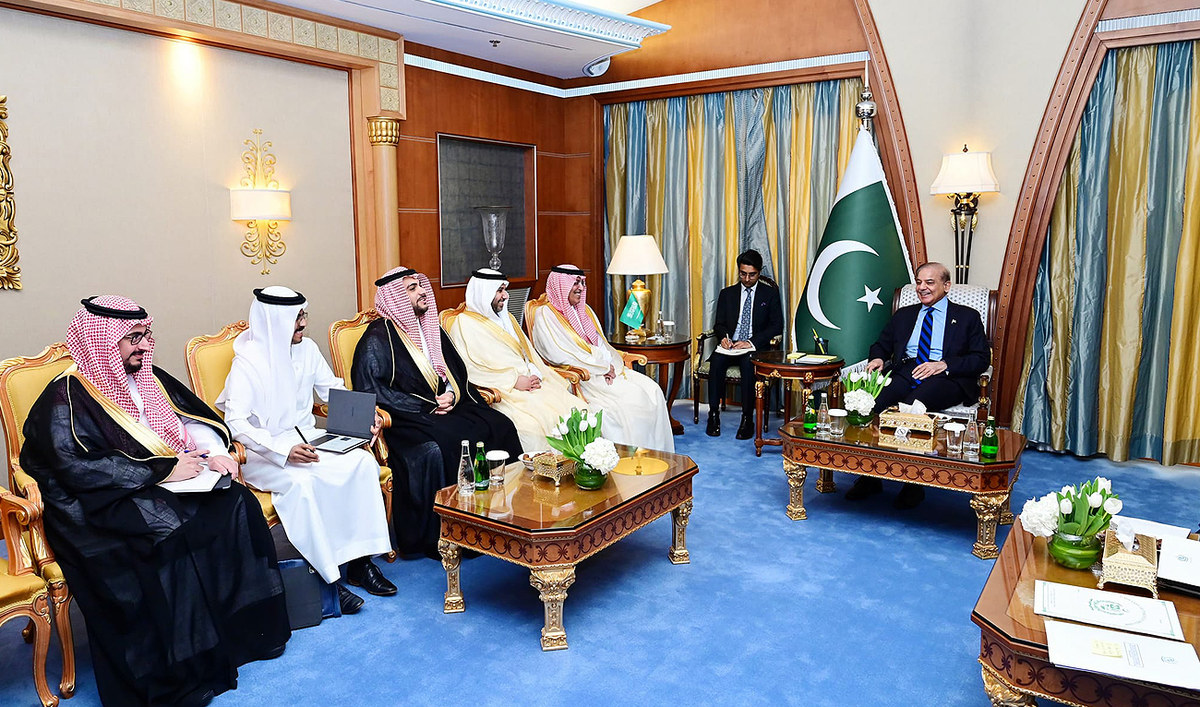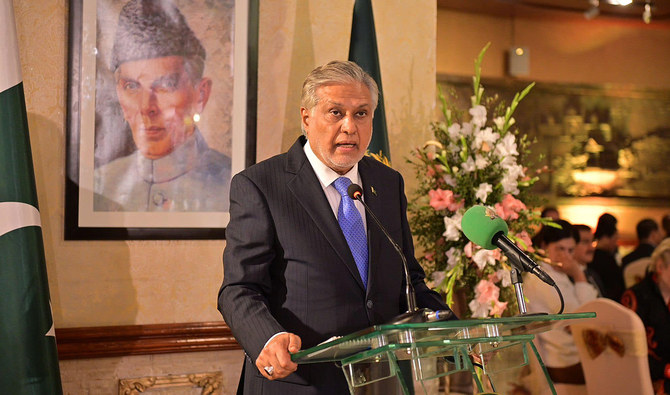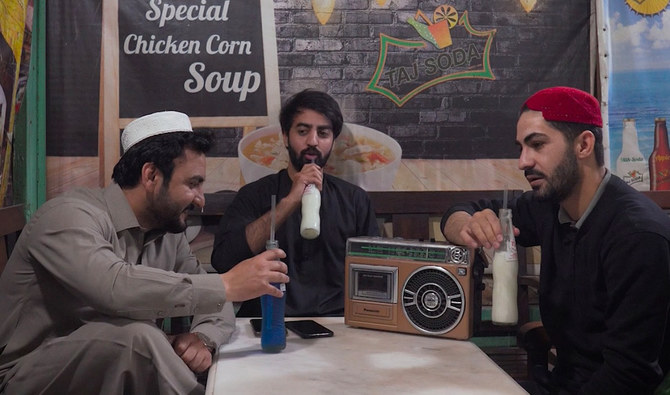ISLAMABAD: As former Prime Minister Imran Khan braces this week to face contempt of court charges and the end of interim bail in a terrorism case, political analysts, journalists and lawyers unanimously denounced the “victimization” of political leaders in Pakistan, while also calling on the ousted premier not to consider his popularity a “license” to break the law.
Islamabad police registered a terrorism case against Khan on August 21 after he called out during a public rally top police officials and a judge who had remanded his chief of staff, Dr. Shahbaz Gill, in police custody in a sedition case. Khan is on bail in the terror case until September 1.
The Islamabad High Court (IHC) has also initiated contempt proceedings against the former premier for his remarks against the judge in the same speech, with hearings poised to begin tomorrow, Wednesday. Another case has been filed by the coalition government of Prime Minister Shehbaz Sharif in the election commission over Khan’s failure to declare in his assets amounts he earned from the sale of state gifts. The electronic media regulator also earlier this month slapped a ban on the live telecast of Khan’s speeches, though the restriction was lifted yesterday, Monday.
The ex-PM, who came into power in 2018 and was ousted in April in a no-confidence vote in parliament, could be disqualified for life from politics if convicted of insulting the judge. The terrorism charge against him could carry a penalty ranging from several months to 14 years in prison, the equivalent of a life sentence.
Khan’s Pakistan Tehreek-e-Insaf (PTI) party has repeatedly called all the cases politically motivated. The Sharif government denies it is targeting Khan.
Arab News spoke to a number of journalists, political analysts and lawyers about Khan’s legal challenges and what they meant for freedom of speech and the future of politics in the country.
“Every time this happens, it indicates a certain fragility within the Pakistani state,” Mosharraf Zaidi, CEO of the thinktank Tabadlab, told Arab News, referring to the court cases against Khan. “Fundamentally, it should be within the domain of the Pakistani state to be able to accept dissenting speech, including speech that some might find offensive.”
Zaidi called it a “shameful decision” to charge Khan under the anti-terrorism act: “This has sadly become our political culture … Every major politician in this country has corruption charges ... foreign funding charges ... treason charges. This is ridiculous.”
“Absolutely, the PTI is being victimized for standing up to the powers that be,” he added, using a euphemism for the military, which vehemently denies it interferes in civilian politics.
Journalist and primetime talk show host Meher Bokhari lamented that political parties across the board had a record for being “champions of the freedom of speech” while in opposition but gagging the media and targeting political opponents once in power.
“It’s very tragic what is going on in Pakistan right now,” she said. “The sad part is that, you know, all these politicians … who have suffered in the past, you know, they say once bitten, twice shy. Nobody is shy around here.”
Most importantly, Bokhari argued that there was little difference now in terms of how politicians, journalists and freedom of expression were treated under military and civilian governments.
“We have seen the same kind of oppression, the same kind of, you know, violence against journalists,” she said. “You’ve seen ridiculous cases of mutiny, sedition, terrorism, the worst kind of application of the penal code right now against Imran Khan.”
Talk show host and political commentator Asma Shirazi said she did not support attempts to gag or politically victimize Khan but argued that he needed to follow the law.
Despite his “irresponsible” speeches against the country’s top officials and institutions, it was unnecessary to “book him under this anti-terrorism law,” Sherazi told Arab News, arguing that the contempt charges were fair.
She added: “I support freedom of speech, but I can’t support abuse of freedom of speech.”
“He is a popular leader, but his statements could be dangerous,” she said. “Popularity is not a license to violate rule of law.”
“Even then,” Sherazi added, “it’s I think unnecessary to book him under this anti-terrorism law.”
“None of this is very constitutional because every politician has a right to disseminate his views to his supporters and to the public at large,” Barrister Usama Malik said.
The legal expert said while the anti-terror act carried a clause prohibiting the intimidation of public officials and Khan’s remarks against the judge and police officials were “uncalled for,” the case did not qualify under terrorism rules.
“Terrorism charges do not carry any great weight and I am glad that he has been granted bail in this matter,” Malik said.
However, the contempt case had serious implications, the lawyer said.
“There is a possibility that if his apology [for remarks against the judge] is not accepted,” Malik said, “then he could very well be disqualified [from politics].”



